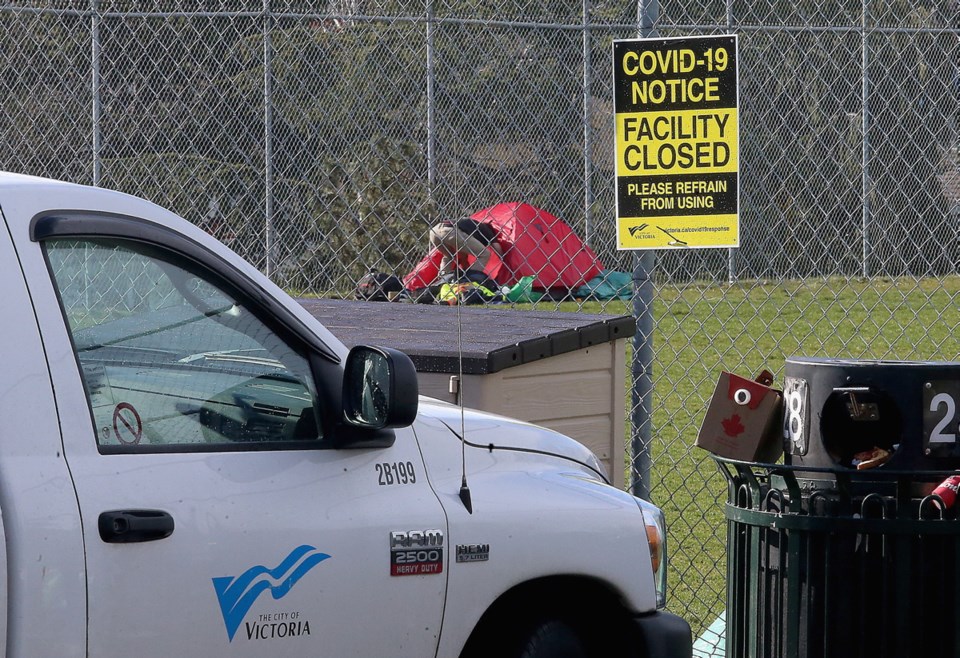Twenty-seven people who had been living in Victoria parks were moved into hotel rooms over the weekend in an effort to help a vulnerable population meet physical-distancing requirements.
Mayor Lisa Helps said in a news conference Monday that Island Health has told the city that COVID-19 will hit the unsheltered population at some point. “We’re buying some time right now,” Helps said.
The city secured 35 rooms last week through Emergency Management B.C. Eight more people were expected to move indoors and fill the remaining rooms Monday, Helps said.
The city has also identified an additional 40 rooms that are available, bringing the total up to 75.
“Social-service providers will be out in the community today and in the coming days identifying people to move into those rooms,” Helps said.
She said people will need to be able to live independently to be eligible to move into a hotel room. Those with complex mental-health and addictions challenges will first be moved to Royal Athletic Park, where health-care supports and physical-distancing measures will be in place. There is capacity for about 80 people in the park. They will move indoors when a space becomes available, Helps said.
Topaz Park is also being used as an emergency-shelter location. Helps said the parks were selected because they have washrooms and enough space to ensure physical distancing, and because Topaz Park was already being informally used for shelter.
“These are needed to ensure social distancing is possible and so that everyone in the city — whether they have homes or not — can follow [provincial health officer] Dr. Bonnie Henry’s orders,” Helps said.
Addressing concerns from people who live near the parks, Helps said while it’s not an easy situation, neighbours will probably be better off with people receiving support in the park instead of living informally on the street.
“I’m not going to pretend that these aren’t difficult situations and that there are easy fixes, because there aren’t.”
Helps called setting up Royal Athletic Park “a massive endeavour,” and said finding front-line workers is a challenge. She acknowledged that the tents that have popped up on Pandora Avenue since Our Place Society was forced to close many of its facilities won’t disappear any time soon.
Grant McKenzie, director of communications for Our Place Society, said moving indoors is a better incentive than moving to a park for those camped outside the non-profit, where they’ve always felt safe and where three daily meals are provided.
“I think indoors is a much better alternative for people than camping in parks, because it will give people the ability to self-isolate,” he said. “I think if we can protect this population and stop the virus from entering this community, then the safer the greater community will be.”
Helps said the province is also working on securing motel rooms across the Island and the province.
She said the response to the COVID-19 crisis could potentially have long-term effects in addressing homelessness in the city.
“If we can move people inside to get them the health care that they need in this health emergency and have those appropriately social distances, I think it would be very difficult to, you know, essentially throw people back out on the streets afterwards,” she said. “And I think this is putting a bit of pressure on B.C. Housing, Island Health, and everyone working with them to solve this once and for all.”



